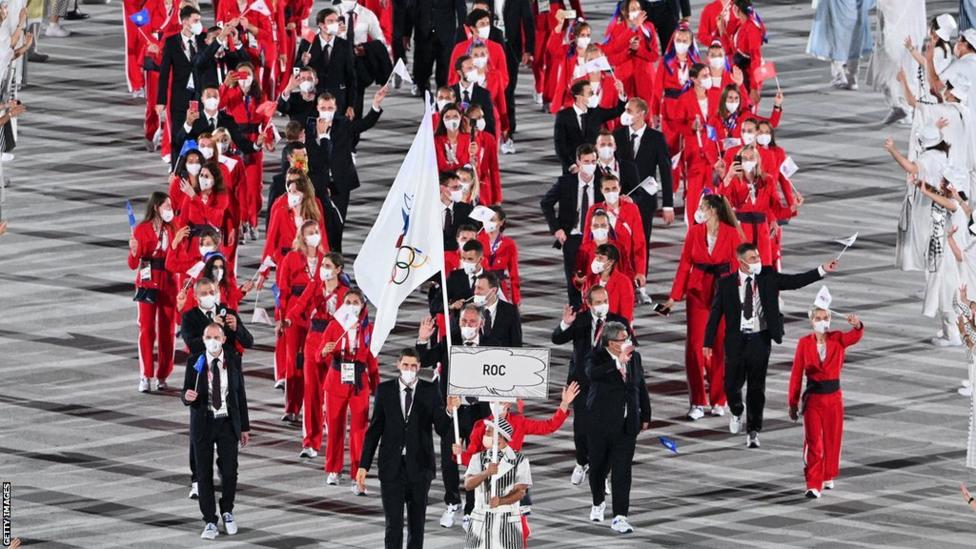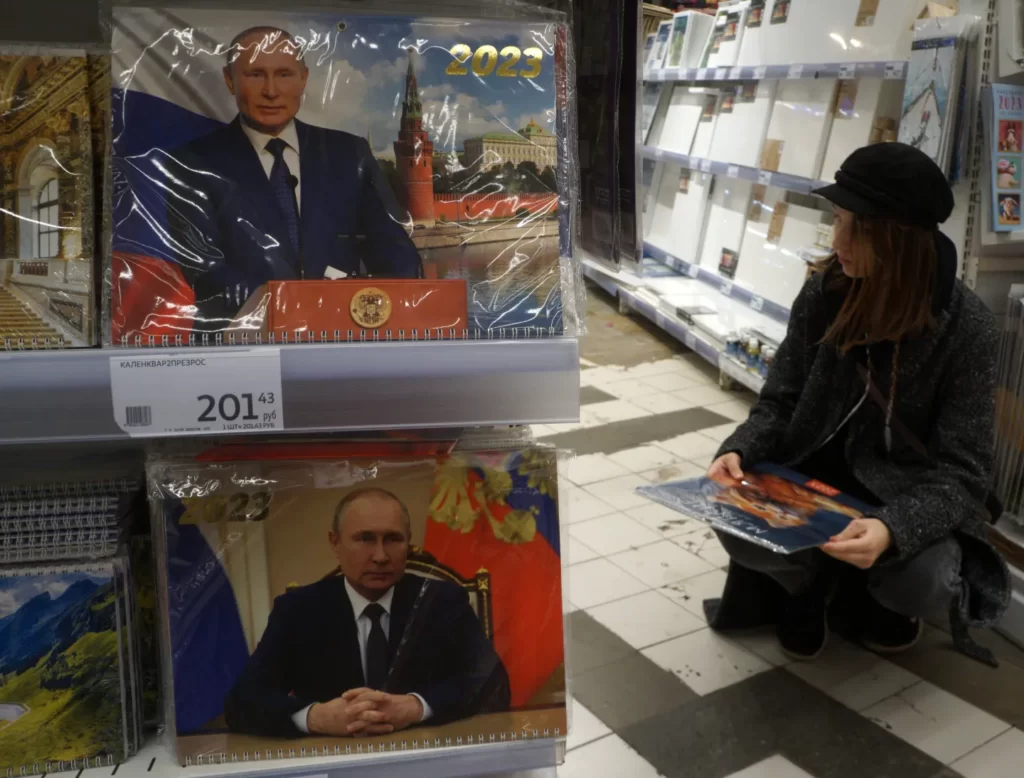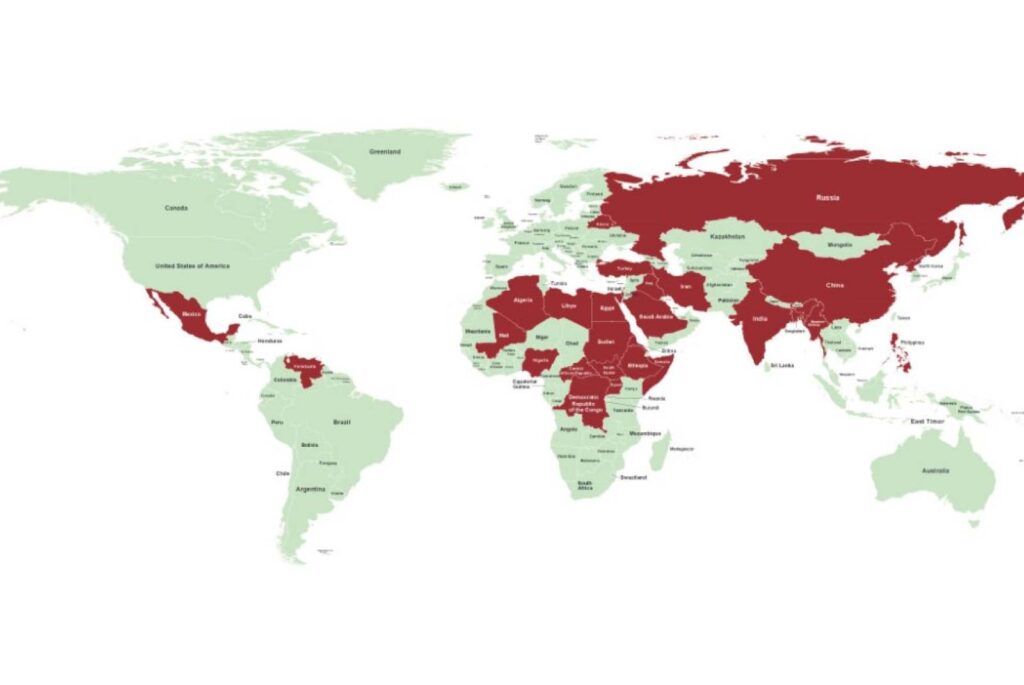Oppressive Regimes
Introducing the Issue
Are you ‘wilfully complicit’ in the Chinese government’s genocide against the Uyghur people? What are the chances that one day we’ll all end up in “education and training” camps in a distant corner of Xinjiang being treated for the “disease” of “extremist ideology” because we don’t fit ethnically? Winston Churchill said an appeaser is one who feeds a crocodile – hoping it will eat him last.
If we turn a blind eye, if we shrug and tell ourselves we can’t do anything about what happens inside China, and this is just the way the world works, then isn’t it the case that we’re complicit and appeasing? Democratic governments and international organisations struggle to hold oppressive regimes to account. However, businesses and organisations can use their buying power and their voices to force change.
Does your company Trade with Oppressive Regimes?
What is your company’s current exposure to and response to trading with oppressive regimes? Do you have policies or practices developed? How do you identify or define an oppressive regime? Perhaps this isn’t an issue that you need to worry about right now? We’ve developed benchmarks that attempt to define Poor, Okay, Good and Excellent company performance standards on oppressive regimes.
You are invited to assess your business against these benchmarks, for free and without obligation.
Oppressive Regimes
Follow this link to:
1 – choose your score
2 – add a few lines by way of explanation to describe your policies and practices
3 – enter your email address so that we can get back to you
4 – submit
Nothing you submit will be published or shared.
Exploring the Issue
When it comes to the apparent disregard for human rights and norms from nation states, both China and Saudi Arabia often spring to mind. But, currently, it is perhaps Russia that stands out as the preeminent oppressive, aggressive and autocratic state on the global map.
China in particular has shown no interest in protecting the human rights of its citizens, more possibly viewing these rights as an existential threat. China’s government has repeatedly tried to strip Muslims of their culture, religion, and independent political viewpoints.
Saudi Arabia is continuing to suppress human rights through limiting freedom of expression, abusive power in the criminal justice system and the unrelenting oppression of women’s rights.
Russia’s unjustified attack on Ukraine was supported by many of Russia’s oligarchs, in which trading within oppressive regimes played a crucial role in funding the war. The indirect support of an organisation’s economic routines can help oppressive regimes prolong their efforts.
The UN Guiding Principles on Business and Human Rights “apply to all States and to all business enterprises, both transnational and others, regardless of their size, sector, location, ownership and structure.” These principles establish that all businesses have an explicit role in the realisation of human rights. They have a responsibility to respect them and to take steps to avoid infringing the rights of others, and to address any adverse human rights impacts which result from their corporate activity.
Foreign investment and business play a key role in helping developing countries to reduce poverty and build their economy. But business can also have the opposite effect of perpetuating political repression by helping to sustain and fund governments that oppress their own people.
Organisations have a responsibility in choosing to be in opposition to oppressive regimes, many of which aim to secure silence in its oppression. A company that undertakes any business with a military or other coercive regime runs the risk of contributing directly or indirectly to issues like human rights violations. Even when business activities and operations do not, in themselves, play a role in such abuses, a company may risk significant damage to its own reputation through association with such a regime.
Growing demands of accountability should inspire businesses to be socially responsible by resisting trade with oppressive states and their business enterprises. Namely, during the Qatar World Cup in 2022, local television authorities in France implemented various measures to limit football broadcasting, concerning association with the human rights violations in Qatar.
Deciding whether to trade or not to trade in association with oppressive regimes will ultimately decide the level of resistance within levels of society and business. And, as such, businesses in other parts of the world may choose to act to encourage and attempt to aid unprejudiced human right norms, particularly in countries who violate international law today. Or they may choose not to.
Definitions
Below are some of the characteristics which EdenTree suggest are likely to be prevalent in ‘Oppressive Regimes’:
- Authoritarian (single-party, tribal or Monarchic government); or totalitarian (military or civilian dictatorship)
- Absence of the rule of law; arbitrary detention; disappearances; extra-judicial executions
- Persecutions of sections of society, possibly including ‘ethnic cleansing’, genocide, persecution of religious and ethnic minorities
- Torture used as part of the judicial or extra-judicial process
- Suppression of civil society institutions
- Restrictions on freedom of expression; persecution of human rights advocates, trades unions
- Restrictions on freedom of movement; forced deportation
- Restrictions on media, including censorship, surveillance, and persecution
- State-sanctioned slave- or bonded- labour; systemic child labour
- State-sponsored persecution or discrimination of women and girls by virtue of gender (e.g. female genital mutilation)
- Occupation of disputed territories
EdenTree’s list of oppressive regimes contains Freedom House’s ‘Worst of the Worst’ (i.e. Syria, South Sudan, Eritrea, Turkmenistan, North Korea, Equatorial Guinea, Saudi Arabia, Somalia, Sudan, Tajikistan, Uzbekistan, Central African Republic, and Libya), as well as China, Egypt, Russia and a number of the Gulf States.
Articles & Resources

2024 Paris Olympics: Up to 40 countries could boycott Games, says Poland sports minister
BBC
Poland’s sport and tourism minister Kamil Bortniczuk after Poland, Lithuania, Estonia and Latvia jointly reject an International Olympic Committee (IOC) plan to allow Russians and Belarusians to compete in 2024. Ukraine has threatened to boycott the Paris Olympics if that occurs.

‘The Feckless 400’: These companies are still doing business in Russia–and funding Putin’s war
Fortune
While we have saluted the historic courage of the 1,000+ global multinational corporations that fully exited Russia, we need to once again explicitly call out 400 major multinationals that continue to do business in the country, generating hundreds of billions of dollars in support of Putin’s mass slaughter in his assault on a peaceful neighbor 18 months into the conflict.

Oppressive regimes
Ethical Consumer
A new updated list of countries governed by oppressive regimes explores the changes in the last five years.
